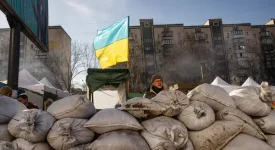Over the last decade, the EU’s introduction of a new generation of trade agreements has spurred a desire to upgrade its nearly 23-year-old customs union (CU) with Turkey beyond its narrow focus on the removal of tariffs on industrial goods, to include provisions on services, investment, intellectual property rights, public procurement, digital innovation and sustainable development.
There has now also been an active debate in the UK about its customs relationship with the European Union after Brexit. The UK has proposed a complex ‘facilitated customs partnership’ in which the UK would collect EU tariffs on goods that pass through the UK but are intended for the EU, while potentially operating different tariff rates on goods destined for the UK market, with any difference claimed back by UK importers – although the EU has rejected this proposal. The UK Labour Party, meanwhile, supports a new CU between the UK and the EU.
Turkey’s experience with the CU and its stalled modernization provides some important lessons for the UK. The Turkish government is frustrated by the slow pace of the process to upgrade the CU and the ability of any EU member state to block the process. The fact that Ankara has limited influence over the EU’s trade policy when the EU negotiates FTAs with third countries, in spite of the CU, isn’t helping either. The European Commission is concerned with promoting advantages for the member states. If Britain remains in a CU after Brexit, it would fall into the same category as Turkey: an ‘associated state’.
There may be space for creating new consultative mechanisms to give the UK a greater voice, but its direct influence will remain limited. The EU Commission will recognize that privileges or concessions made to the UK in any future relationship would create a demand for comparative treatment of Turkey in any upgraded CU. Furthermore, this makes it less likely that the EU will offer the UK mechanisms to influence the direction of EU trade policy as a non-member.
While the CU eliminates the need for rules of origin, regulatory barriers would remain, so the benefits of a CU in resolving border challenges are sometimes overstated. The EU–Turkey CU does not eliminate all requirements for border checks and non-tariff barriers. Turkish hauliers, as noted above, face long queues and onerous procedures at the Greek and Bulgarian borders. By comparison, the current UK rail and port crossings to France and Belgium are seamless for people and goods, a situation that could not be maintained if the UK exits the EU single market while remaining within the EU’s CU.
For the UK, the Turkish experience with the EU shows the shortcomings of a CU. While it would eliminate the need for complex rules of origin, it would still mean long queues for trucks and lorries at the border, no say in EU trade deals with non-EU countries, obligation to adopt EU rules and regulations, asymmetrical market access, and the inability to adequately challenge unlawful restrictions introduced by EU member states on UK exports. If there is any advice that can be given, it is that UK should stay as further away from the Turkish model as possible and try to negotiate on different terms.
‚EU–Turkey Customs Union: Prospects for Modernization and Lessons for Brexit‘ – Briefing Paper by Fadi Hakura – Chatham House / The Royal Institute of International Affairs.
(The Briefing Paper can be downloaded here)







